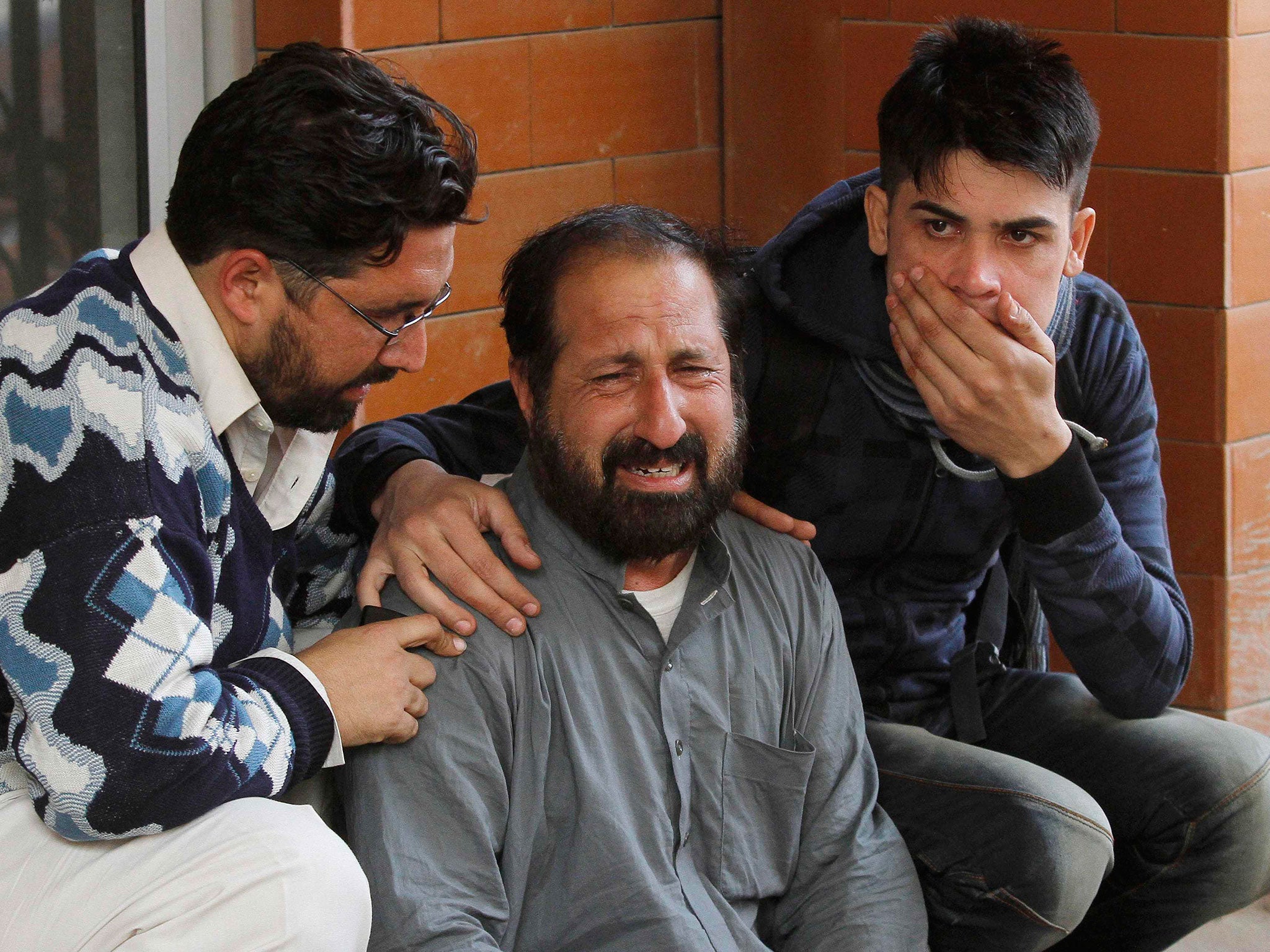Peshawar school attack: Will the most horrific attack in Pakistan's recent history finally unite its squabbling politicians?
More than 140 pupils and teachers have been killed by the Taliban

Your support helps us to tell the story
From reproductive rights to climate change to Big Tech, The Independent is on the ground when the story is developing. Whether it's investigating the financials of Elon Musk's pro-Trump PAC or producing our latest documentary, 'The A Word', which shines a light on the American women fighting for reproductive rights, we know how important it is to parse out the facts from the messaging.
At such a critical moment in US history, we need reporters on the ground. Your donation allows us to keep sending journalists to speak to both sides of the story.
The Independent is trusted by Americans across the entire political spectrum. And unlike many other quality news outlets, we choose not to lock Americans out of our reporting and analysis with paywalls. We believe quality journalism should be available to everyone, paid for by those who can afford it.
Your support makes all the difference.The frontier city of Peshawar was once fabled as “the city of flowers”. That description seemed impossibly remote yesterday as Taliban gunmen mounted what is being called the most horrific attack in recent Pakistani history.
The Pakistan Taliban is an even more vicious offshoot of its Afghan counterparts. It long abandoned any attempt to court public opinion. It operates with a ruthlessness that has only recently been rivalled by the self-proclaimed “Islamic State”.
Among the Taliban’s most prominent targets have been the army and schools. It has ritually attacked the army since military operations were first waged against it a decade ago. This has been the case not just on the battlefield, but also on softer targets, like mosques, factories and colleges.
Like Boko Haram in Nigeria, the Pakistani Taliban has an aversion to classrooms. It is a function of its own illiteracy, but also its belief that such places of learning promote “vulgarity” and “Western-inspired decadence”.
In Peshawar, these two targets came together in the form of Pakistan’s most vulnerable: school children. The Army Public School was assailed by an estimated half a dozen attackers who detonated bombs, scattered IEDs, torched teachers, severed heads, randomly shot at children and held them hostage.
The Taliban said it was responding to the Pakistan army’s ongoing offensive in North Waziristan, a tribal area along the border with Afghanistan that is a few hours’ drive from Peshawar. North Waziristan has long been notorious as a hornets’ nest of militants, from both branches of the Taliban, to Central Asian and Chinese fighters, and, of course, al-Qaeda.
For several years, the Pakistan army had resisted going in, fearing the backlash that may ensue. Earlier military offensives in the six other tribal areas had provoked revenge bombings deep in Pakistan’s heartlands.
The Pakistani Taliban has a sinister and cowardly calculus. It believes that if it raises the human cost of Pakistan mounting military offensives against its fighters, it may be able to force the government to relent and bargain for peace.
A Taliban spokesman explained the logic in chilling terms to Reuters as the Peshawar massacre was under way: “We targeted the school because the army targets our families. We want them to feel our pain.”
The pain has been registered not just across Pakistan, where three days of national mourning have been called, but throughout the world. The question, though, that follows is: “What will Pakistan do to respond?”
The Prime Minister, Nawaz Sharif, was quick to descend on Peshawar and express his resolve against the terrorists, but slow on adumbrating what steps his government would take. He has called a conference of all political parties, something that is already being dismissed as a wasteful gimmick.
The current government and the opposition, led by former cricketer Imran Khan, have been reluctant to face the Taliban. After last year’s elections, they attempted to sue for peace, in a move that backfired with talks breaking down as the militants used the time and space to entrench themselves.
Mr Khan has been busy harrying Mr Sharif in street protests in different parts of the country. The area he has neglected most is the northwest, where his party rules the province and the massacre took place.
Tuesday’s events should prompt Pakistan’s leaders to shed their petty rivalries and take the threat seriously and finally acknowledge that there can be no reconciling with people who slaughter children. Peshawar’s flowers wilted long ago.
It has long been notorious for kidnapping and political assassination. Now it will be thought of in the same way as Beslan in Russia, scene of a school massacre in 2004.
Join our commenting forum
Join thought-provoking conversations, follow other Independent readers and see their replies
Comments